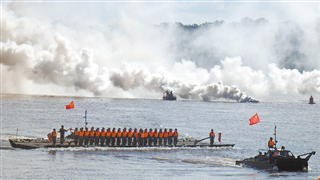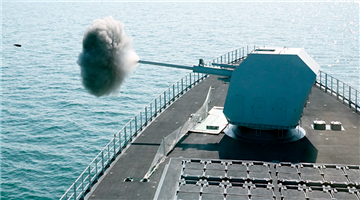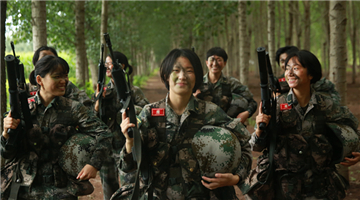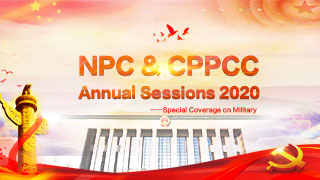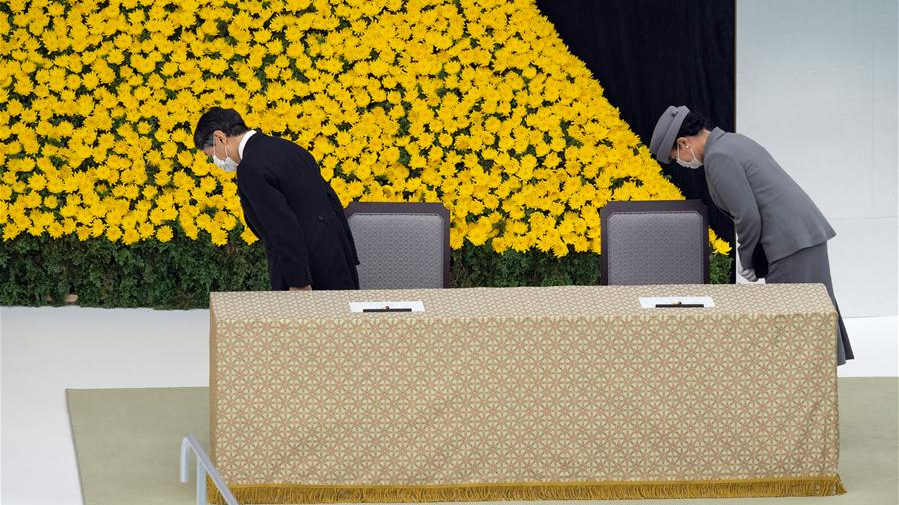
Editor's Note: Cheng Xiaohe is an associate professor at the School of International Studies under Renmin University of China, and a senior researcher with Pangoal Institute. The article reflects the author's opinion, and not necessarily the views of CGTN.
Japanese Prime Minister Shinzo Abe once again disappointed and angered neighboring countries with his speech at the 75th National Memorial Ceremony for the War Dead on August 15.
He continued to refuse to express remorse over WWII; nor did he apologize for Japan's wartime atrocity or acknowledge the tremendous damage and suffering done to the people of many countries. Either, he didn't pledge to not engage in wars in the future. In this year's speech, Abe didn't even bother to mention that we should take the lessons of history deeply into our hearts.
Given the trajectory of Abe's past August 15 speeches, it is not a surprise that Abe stepped forward to erase the last piece of the legacy on the historical issue left by former Prime Minister Tomiichi Murayama, who set a tradition of August 15 speeches in 1995 by expressing his remorse and apology for the country's wartime actions.
In late 2012, Abe came to power for a second time with an ambitious plan to restore Japan's normal statehood. As a crucial step, he not only broke with two decades of tradition by failing to utter his remorse over the country's past aggression on the anniversary of Japan's surrender in World War II, but also said goodbye to his own 2007 speech at the 62nd Memorial Ceremony for the War Dead, which abided by the tradition and clearly carried the key words such as "remorse," "mourning," "damage," "suffering" and "pledge."
Abe's departure from the tradition demonstrated his intention to rally popular support on one of the country's most important occasions, end the so-called apology diplomacy, and narrow the focus of the August 15 speech to the more than 3 million Japanese who died on the battlefields.
Certainly, it is part of Abe's revisionist effort to restore Japan's normal statehood, including embellishing its militarist history and revising the Peace Constitution.
Even though Prime Minister Abe adopted an incrementalist approach to dismantle Murayama's legacy by dropping the key words one after another in his speeches in order to avoid generating strong domestic resistance and overseas denouncement, China and other Asian countries have made it clear that Abe's watered-down speech and his cabinet members' visit to the Yasukuni Shrine, which honors 14 Class-A convicted war criminals, reflects the erroneous attitude of some senior Japanese politicians toward history.
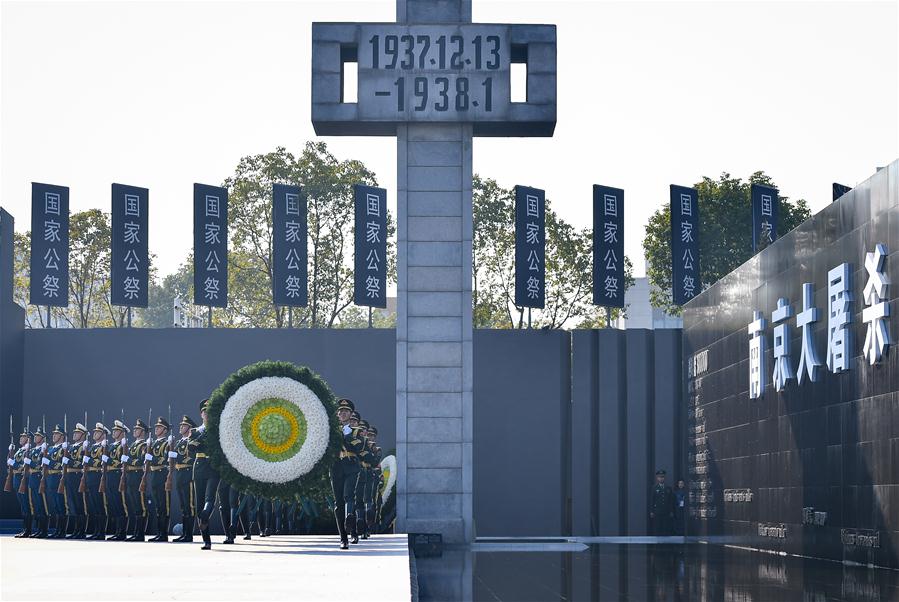
Some prominent Japanese politicians also lodged their criticism of Abe's speech. Tomiishi Maruyama insisted, "It is axiomatic that historical perceptions such as it was not a war of aggression, or it was a war of justice or it was a war to liberate colonies are utterly unacceptable."
Since 2013, Abe's annual August 15 speech has become a fixed irritant on Japan's relations with its Asian neighbors, who once fell victim to Japan's aggression and deserve an official apology from the Japanese government.
It is clear that there are two competing attitudes on historical issues in Japan: politicians like Maruyama believe that "efforts to sincerely reflect on Japan's past will pave the way for the country to gain honor" and "an attitude that would not recognize Japan's aggression and colonial rule will give the country a bad name." Others, who align with Abe, try to whitewash Japan's wartime history and end the historical disputes with neighboring countries unilaterally.
Abe's August 15 speech helped him to dismantle Maruyama's legacy, one of his long-pursued goals. Such a short-term gain is reaped at the expense of Japan's long-term interests.
His attempt to distort history will inevitably backfire and create additional difficulties for Japan to maintain normal relations with neighboring nations. China and other Asian countries have legitimate reasons to believe that the Japanese government has yet to adopt a right attitude toward its imperialist history and take concrete actions to redress historical grievances.


